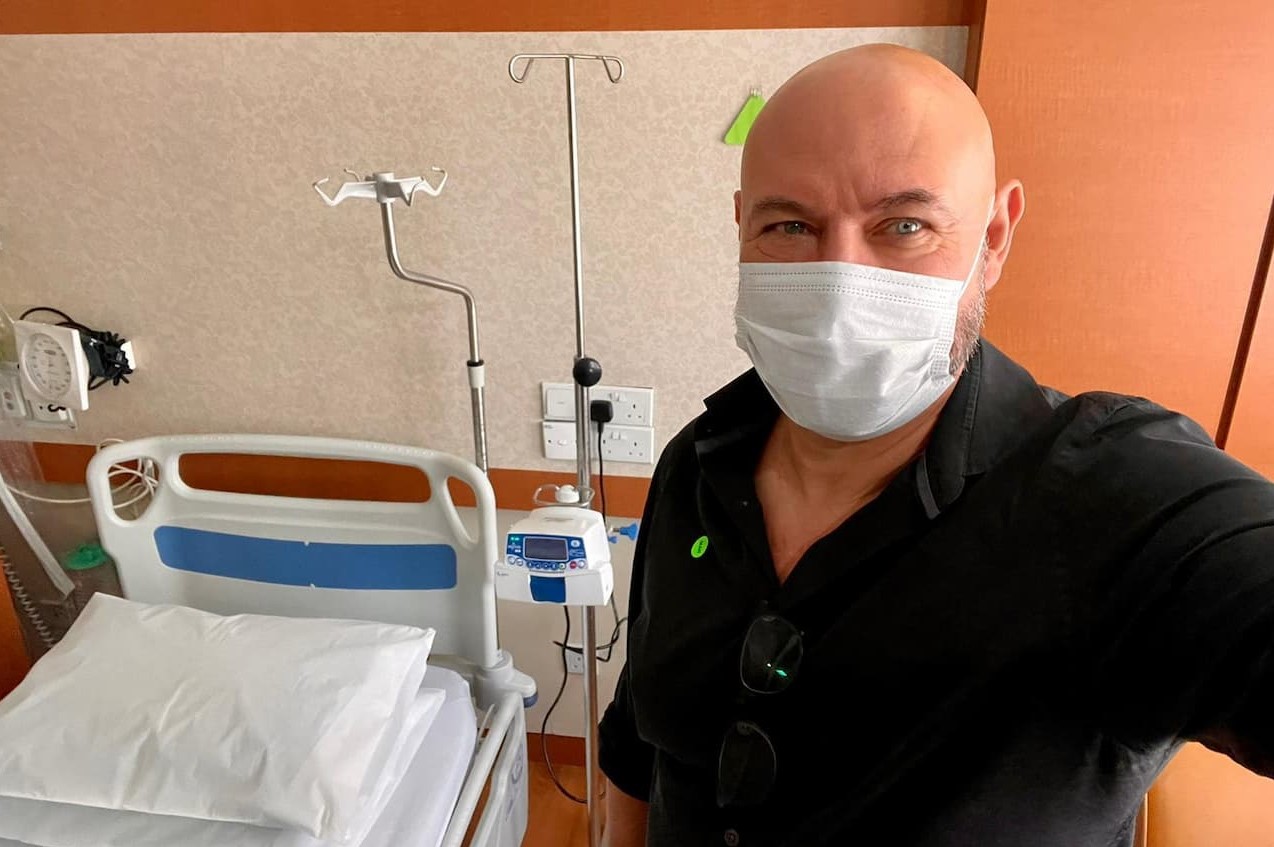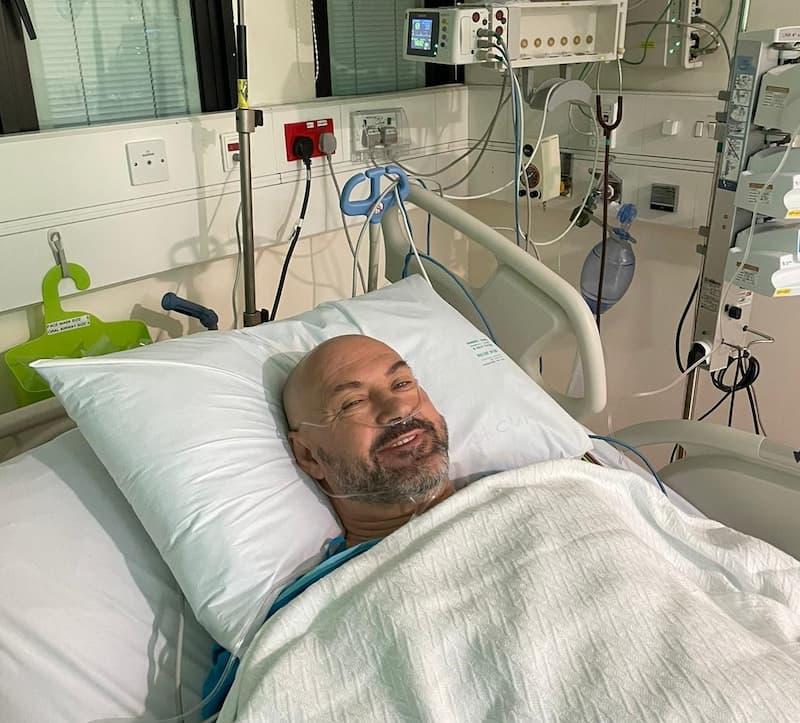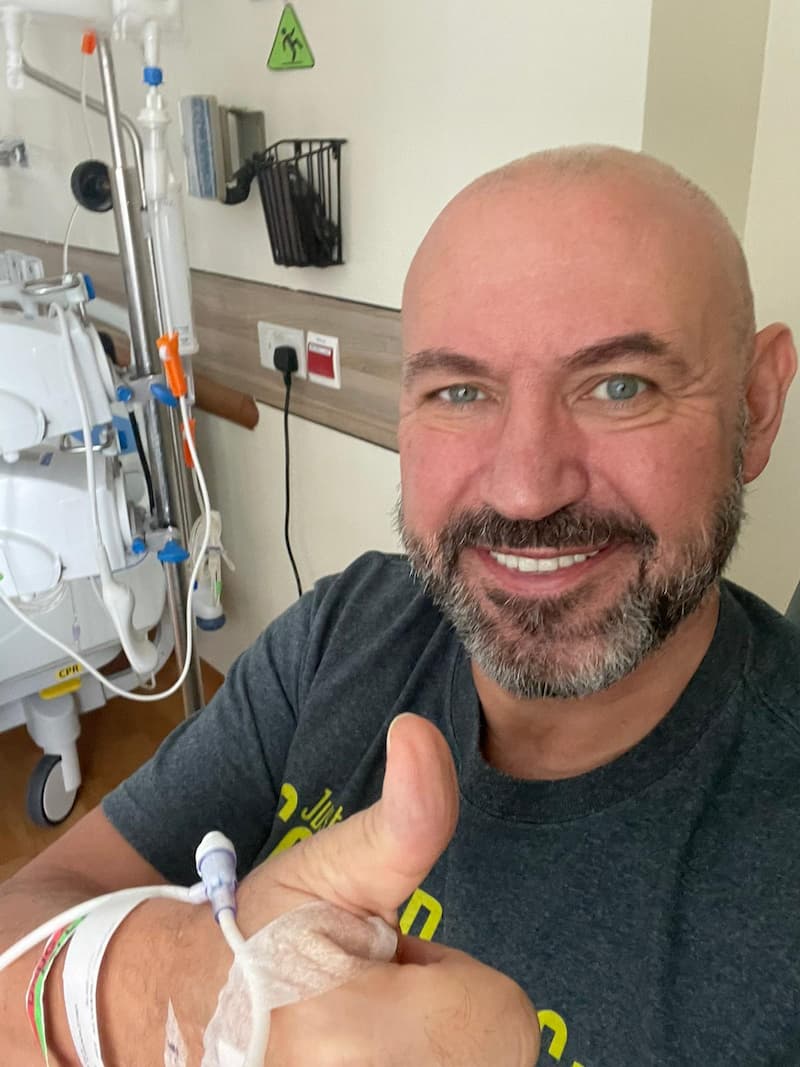Dealing with Bad News - Self-leadership Strategies
Jun 04, 2021
It often starts with a phone call or a message. Suddenly the world is different, and you must reorient yourself, or be overwhelmed by feelings of helplessness.
Whatever the bad news, financial, relationship, reputation, or health, with the application of self-leadership we can apply strategies. Self-leadership strategies to intentionally influence our thinking, feeling, and actions. To once more become the ‘Captain of our Ship’, or the ‘Master of our Soul’.
Getting Cancer and Not
 Four weeks ago, I visited my family doctor, and as I’m just turning 60, I asked proactively for a full health screen. I did this because I knew it was the right thing to do, given my age and family history, not because I was experiencing any symptoms, quite the reverse in fact. My frame of mind was, therefore, “this is one more thing to check off the list”.
Four weeks ago, I visited my family doctor, and as I’m just turning 60, I asked proactively for a full health screen. I did this because I knew it was the right thing to do, given my age and family history, not because I was experiencing any symptoms, quite the reverse in fact. My frame of mind was, therefore, “this is one more thing to check off the list”.
Then the phone call came, and my world changed.
“Andrew, this is Dr. Seah, your blood shows a Cancer Marker, and you are going to need a CAT scan as well as a Colonoscopy, but don’t worry.”
Don't worry! Until that moment, I had not considered that I might have cancer, but now without testing, my reality was that I both had cancer and did not. Those familiar with the famous Schrödinger’s cat thought experiment will be familiar with this paradoxical situation.
The conventional wisdom to, “think positive”, is not necessarily the best approach. A more stoic response and the first self-leadership strategy is to face the brutal reality, whilst not losing faith that you will prevail. This approach is well illustrated by Jim Collins in his book, Good to Great when he interviews Admiral Jim Stockdale about being a Prisoner during the Vietnam-America War.
My thoughts and actions were, therefore, I hope it’s not cancer, but if it is what is the best approach to deal with it for myself, my family, and my business?
A week later, I have the colonoscopy and the CAT Scan. All goes well with the colonoscopy, but the specialist doctor says he will call the next day with the CAT Scan results. I have video calls booked back-to-back the next day and so I hand my phone to my wife with instructions to answer a call from the doctor and get the results.
At lunchtime, my wife comes into my office with a concerned look. “The doctor called”, she says.
What are the results? I asked. “We have an appointment at 2 pm, I’ve cleared your schedule.”
Being asked into the specialist’s office rather than getting the results over the phone is never good news, and the second impact dawned on me. When we receive bad news, it influences those around us. Every facial expression and every change of tone will be picked up by the watchful eyes of those that care about us and the resolution of the problem.
My self-awareness let me notice this increased vigilance. I therefore intentionally self-regulated my demeanor to one of pragmatism.
“Let’s get the facts and then we can deal with it.”
This is self-leadership strategy number two. The impact of bad news can spread like wildfire, so manage your emotional state. This is especially important for leaders in times of crisis when people are looking to them for a steady hand.
“We found a large tumor on your colon; it’s going to have to come out. I’m going to refer you to a surgeon.”
Now, what was just an idea is now a reality. I have a tumor!
Remembering strategies one and two, I book the appointment with the surgeon. Thankfully, this is happening in Singapore and I’m able to get first-class access to medicine (for a price) and only have to wait for 24 hours to see the surgeon.
Dr. S.K Wong is a tall and cheerful Singaporean, with a faint American accent that he picked up whilst studying there.
“OK”, he says, “It may or may not be cancerous, but we won’t know unless we take it out. I have to get it all, so it won’t spread, and that means removing one-third of your colon, which is major surgery.”
In a matter of days, I have gone from being oblivious of this thing living inside me, to mortal fear of its impact. Of course, I wanted it out and booked the surgery for 2-weeks later to get my affairs in order.
Considering Consequences
When we get bad news, it is prudent to consider all the consequences.
Denial, history has shown, is not a sustainable strategy.
A consequence of getting the type of news I received, is that you begin to consider your mortality. Cancer is not necessarily a death sentence, but it can alter life expectancy, and surgery does not come without risks.
The first thing I noticed, was a sharpening of my sense of what matters and what does not. Before we react or make any decision in life, it is worth taking a pause and asking,
“Is this really important?”
How many times have we become agitated by the smallest things, that would evaporate if we were facing much more significant consequences?
I booked an appointment with my Financial Planner, checked my life and health insurance, and reviewed my will. Not fun activities, but important. I cleared my calendar for the surgery and a week in the hospital and rescheduled my clients.
Knowing and doing what is important is self-leadership strategy number three, for responding to bad news.
A Circle of Care
"No man (or woman)is an island entire of itself." John Donner
Bad news does not need to be handled alone. Nor does it need to be broadcast on Social Media. The ‘trick’ in my experience is to have a ‘Circle of Care’. A Circle of Care is the group of people who know you, ‘warts and all’, and love you anyway. Usually, but not necessarily, this is family and friends. I am lucky to have my wife, Andrea, as my rock that I can cling to in the deepest storm. I know the power of this because,
“I have faced adversity alone, and I have faced it with friends. With trusted friends, adversity is just a walk in the park.”
I have realized that when you share your bad news with people, you put responsibility upon them. Some take the news pragmatically, whilst others lose sleep, and if you share the news with someone who is fragile, you are going to end up supporting them, rather than them supporting you.
At first, I shared my bad news with only my closest friends. Their insights, perspectives, and care helped me face reality and I realized it was ‘safe’ to expand the circle to about one dozen people.
As the surgery approached, I set up a Whatsapp group so that my wife could keep my Circle of Care informed through the process and relieve me of the need to keep updating.
So self-leadership strategy number four is to have a Circle of Care, preferably before you get bad news.
And for the people I care about more than anything in the world, my children, I had a frank conversation about what was about to happen, including the risks. Strategy number five, be open and honest with your communication.
It’s a Process
“This too shall pass”. A Persian adage.

The day of the surgery arrived, and I entered what feels like the conveyor belt of a hospital system. I became like a freight package, I was weighed and bar-coded so that every step of my journey could be recorded.
My anesthetist was a pessimist. He took time to visit me in my room to inform me that my expensive dental work was at risk from his intubation, and statistically today I could die.
Believe it or not, I took comfort in his pessimism, because research shows that optimists can be foolhardy, and pessimists tend to be more careful.
I was wheeled into the operating theater and in a few minutes, my fate was out of my hands, as my consciousness was taken away by drugs.
The surgery took six hours instead of three, the tumor was bigger than expected. When I regained consciousness in the ICU I was groggy and disoriented from the anesthetic. But a few hours later I became acutely aware of pain and nausea. I would close my eyes thinking I had slept for an hour, only to wake and see that just 3 minutes had passed on the clock. It was not pleasant but expected.
Surprisingly, it was the second night that was darkest. I spiked a 38C (100F) fever and could not get comfortable in any position. Every breath and movement was excruciating. This was when the darkest thought entered my mind.
“Would I be better off dead?”
This is a profound question. If you know someone who has committed suicide, it’s hard to imagine how they could take such drastic action. I now have a small glimpse of why they might answer yes to this most terrible question.
My answer was not yes. I settled myself and thought of the other bad news I had survived in my life, and what I had to live for. I said to myself in a clear strong voice,
“This is a process, and it will pass”.
This is the sixth self-leadership strategy, to realize that nothing is permanent. Financial challenges, divorce, grief, job loss, all these things are temporary if you work the process.
Good News
“It’s always darkest before the dawn”. Thomas Fuller
Day four. My fever has broken, and my pain is manageable and Dr. S.K Wong comes to my bedside.
“I have good news”, he says, “The histology is benign, you don’t have cancer, and this won’t cause you problems in the future.”
I am incapable of describing my relief. My wife’s relief was visible as she physically wept for joy. She had been carrying a burden for the past four days and it was suddenly lifted.
Now, I know people who have gone through a similar journey to me have not had such great news. I have a friend mindfully finishing her chemotherapy following a double mastectomy, and another speaker friend who named his cancer, Simon so that he could laugh with it.
In every life experience, we have a choice to learn. As I write this blog, I'm waiting to be discharged, but I won't lose the lessons. I will be taking care of myself and have even more empathy for those around me who have received bad news. That's strategy number seven, don't lose the learning.

I’m grateful that I only went to that dark place once. I'm grateful for my close friends and family who supported me through this, and I feel blessed with the result. I hope that you never get bad news, but if you do, here’s a summary of my self-leadership strategies,
- Face the brutal reality, whilst not losing faith that you will prevail.
- The impact of bad news can spread like wildfire, so manage your emotional state.
- Knowing and doing what is important.
- Have a Circle of Care, preferably before you get bad news.
- Be open and honest with your communication.
- Realize that nothing is permanent, this too shall pass.
- Don't lose the learning.
In Conclusion
As a Global Conference Speaker, I have heard stories of survival that make mine pale in comparison. You may have faced much worse in your life, or have yet to face any adversity. I always tell my audiences that I would never wish adversity on anyone, but neither would I not because it is only through adversity that we truly learn who we are, and what we are capable of.
Get a FREE Chapter of The New Leadership Playbook
Stay connected with news and updates!
Join our mailing list to receive the latest news and updates from our team.
Don't worry, your information will not be shared.
We hate SPAM. We will never sell your information, for any reason.

